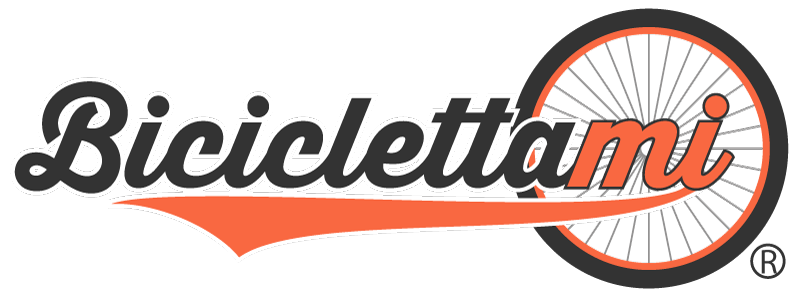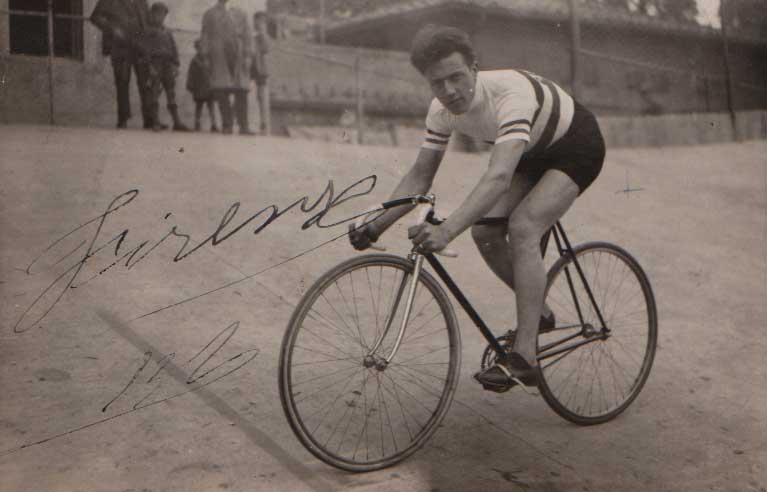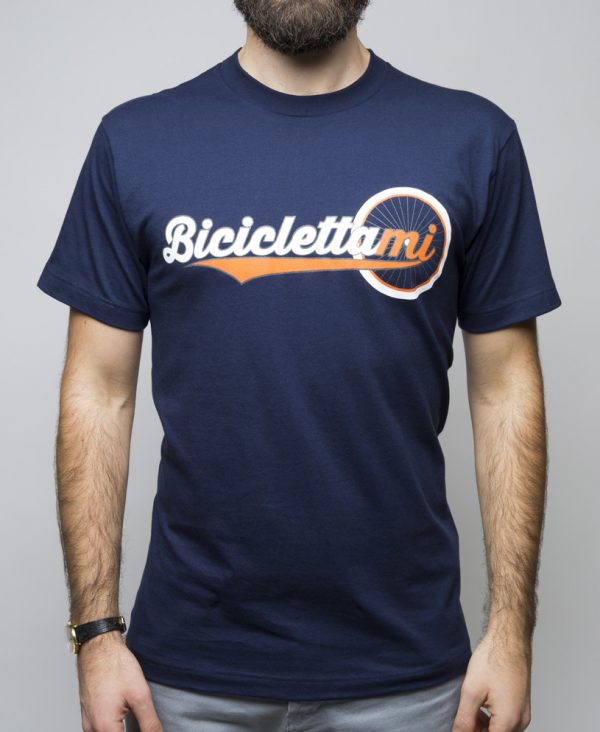Mario Rosi was born on the 13th April 1911 in Florence. Eclectic, strong and fast. In his cycling career he wore the Italian national team jersey for several times, despite there is no trace about his life on the web. This article was born thanks to the meeting with his granddaughters Graziella and Catia and his second daughter Franca, and after some researches on old sporting journals. The aim is to bring to light
the story of a champion, cyclist and pistard
of the same age as my grandfather Gino. When he was a young boy his passion was boxing. He also played soccer with his friends but, when the group of cyclists passed along the road, he got involved in their enthusiasm. His passion for the bicycle was born spontaneously. “He was a true bicycle lover” his daughter Franca remembers “he has never taken the bus in all his life, he travelled only by bike!”
Mario, provided with incredible vitality and energy, starts to race in 1927. His debute at 16 years old was not promising: he retired after 20 km. The news reports “because of being exhausted after the first sprints”. In 1928 the first victory arrives dominating in the final sprint. Rosi distinguishes himself as sprinter, so he is trained to prefer track races. In the same year he classifies second at the regional championship. From that moment he starts to attract the attention of some track reunions organizers. In 1929 he wins two regional titles: speed and middle-distance.
It’s only the beginning of several successes, on different cycling specialties.
In 1930, at only 19 years old, Mario Rosi takes part in the biggest national track competition, arriving at the third place. The following year, in Torino, he wears the Italian threecoloured jersey.
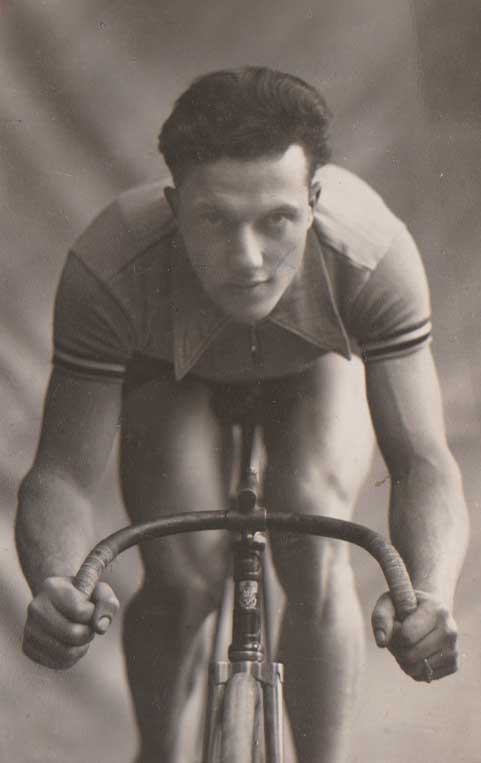
Mario-Rosi
“My grandfather raced in“Dilettanti” category achieving excellent placings. He was hired many times by the national team to represent Italy abroad. “In front of a cup of coffee Catia tells me proudly about the life of her grandfather. “He was stubborn, ill tempered and touchy. He never joined a team. He was part of the independent category.” Graziella shows me a bag full of sporting newspapers , photo albums and press clippings.
Rosi works as a warehouse keeper during the week at the Bozzi company that, at that time, produced Legnano bicycles. In his free hours he trained, besides repairing bicycles for his friends. The week-end is the moment for the adored races! Franca reveals to me his unusual lifestyle:
His work at Bozzi company allowed him to continue his passion: go cycling. He didn’t have a coach, he trained alone.
In 1932 Mario Rosi trumphs with the Italian National team jersey in two great meetings: Italy-France and Italy-Bulgary. There are many newspaper articles with faded ink, that narrate beautiful victories in Sofia. Rosi is very strong and the track bicycle on which he is photographed doesn’t seem so light… Another article shows the promising young man together with his colleague Emilio Lodesani call them “the hope of cycling”. The same year
Mario obtains the selection for the Los Angeles Olimpic Games,
to which he is obliged to renounce because ill. In 1933 he brings home a hundred affirmations on track and three on road competitions. He represent Italy for the World Cup in Paris. Despite being part of the National Federation of Italian Athlets, he doesn’t manage to join a professional team. He continues to compete as an independent cyclist. He keeps his job at the Bozzi factory and, in the while, he only disputes the races that interest him the most. In some occasion he runs with professional riders. Concerning this, I ask:“Have your grandfather Mario and my grandfather Gino ever race together?”
“Yes, they raced together several times” Catia remembers a funny anectode. “At the Cascine Firenze velodrome there was a reunion on track. Honestly, I don’t remember the year. There were important names, among which Gino Bartali. My grandfather Mario insisted to be the opening sprinter. He tried first to ask to Aldo Bini, then he asked to Bartali and to others riders. The cyclists pushed him away in a brusque way. At the starting point they set off with great concentration. An hard competiiton, but at the last curve, my grandfather jumped out the group and won the race.
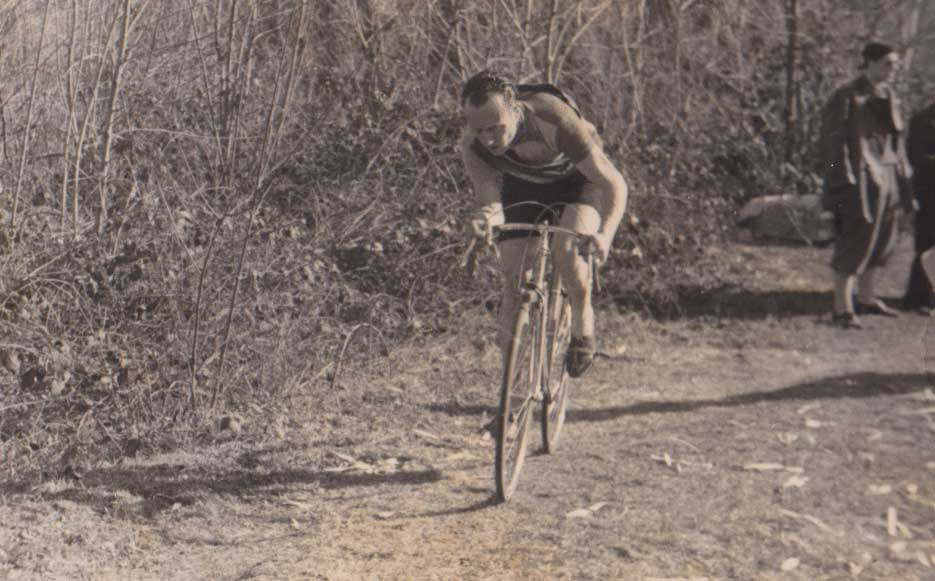
Mario-Rosi-corsa-campestre-1940
Also later in 1940 Rosi raced with Bartali on the circuito Assi for the great Florentine cyclist reunion. Together with them there were famous riders as Coppi, Magni and Cinelli. Rosi was also an excellent winner of the cross country races. What we call today ciclo cross! There were often impervious paths that obliged the cyclist to get off from the bike and to proceed on foot, just like in a sort of podistic race. Exceptional qualities are not required in these competitions but the real true secret that emerges in this specialty is
to have agility and the spirit of battle
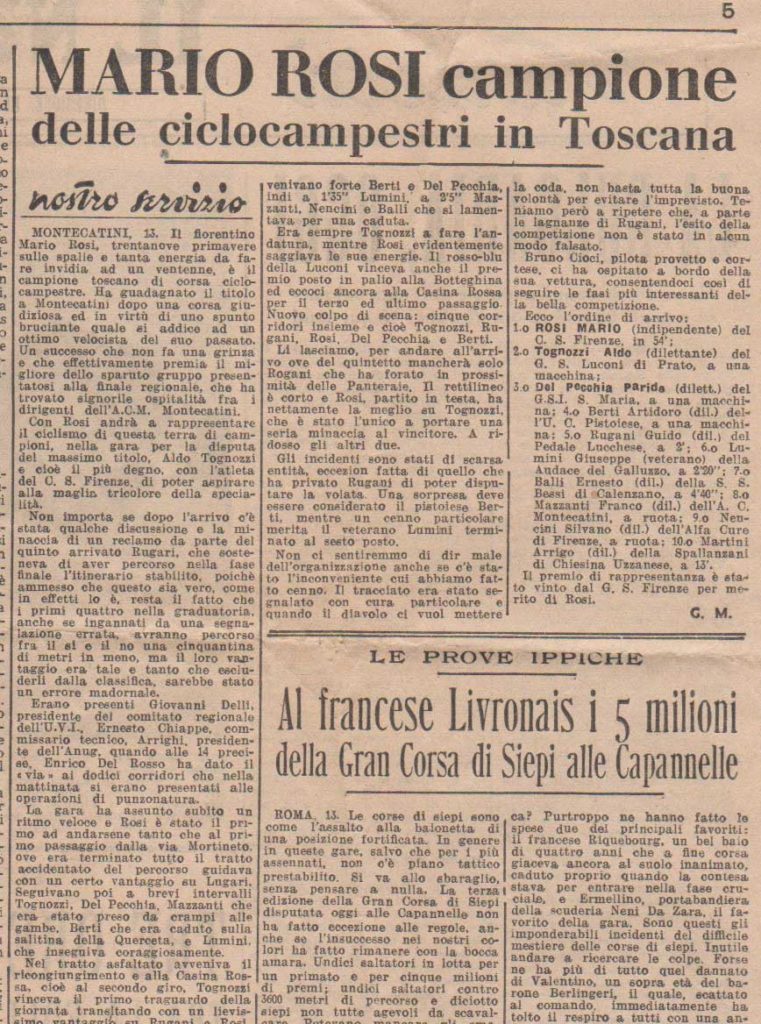
Cronaca-sportiva-campionato-di-ciclocampestre
Later, the Second World War interrupts all the sporting activities. Rosi was on duty in the military corps of the Croce Rossa Italiana as a postman. He received a bronze medal of merit for his service. Another interesting anectode, which Franca tells me about, is and it will be a mystery: “During the Second World War and the months that followed the liberation of Florence, every week my father took a box to Gino Bartali, at his house in Piazza Cardinale Elia Dalla Costa. He has never revealed to us what was inside the box!”
Despite different political opinions, Rosi and Bartali always kept in touch. There was respect between them. They were both very religious. Mario marries Olga Serpici in 1941. From this union two wonderful daughters were born: Carla and Franca. Olga follows Mario in all his races until 1955, year when Rosi ends his long sporting career at 44 years old.
Franca has a shrill voice on the phone, memories are still clear: “Polidori, a cyclist who began his career in the sixties while my father was retiring, confessed that he got shiveres when he raced near to Rosi.
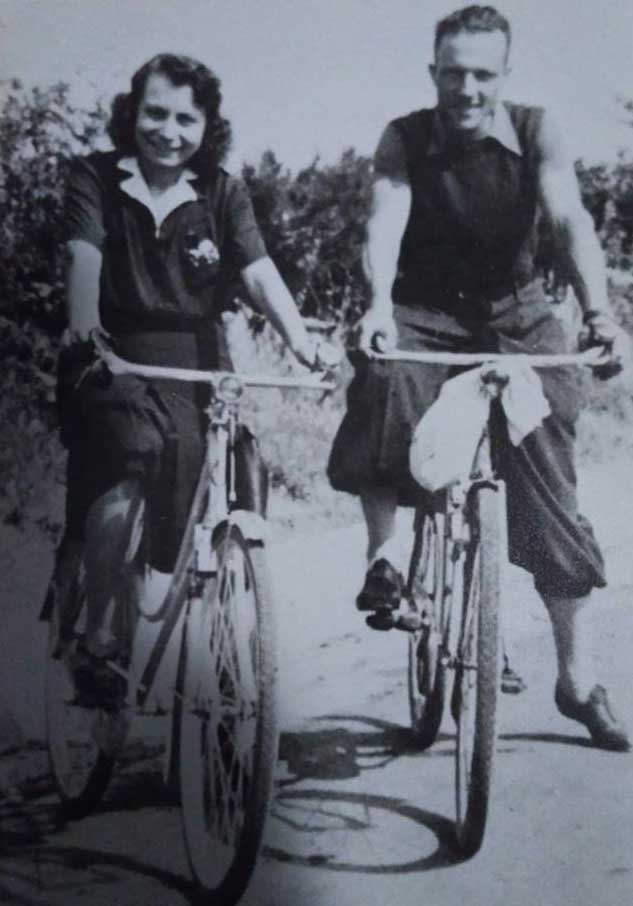
Mario-e-Olga-anni-40
He never ran to arrive second!
Mario Rosi cannot be defined only a pistard. He boasts 28 first placings. A pistard, a road cyclist, a cross country champion, who has not enjoyed Bartali’s or Coppi’s fame but we can consider him a minor star of a costellatin of heroic cyclists. I ask Graziella and Catia: which are your most precious memories about your grandfather? “He was an affectionate grandfather but he didn’t repeat the same things twice. His passion was, at the last, to follow his granddaughters sport. You were in serious trouble, if you didn’t win the race!
Until he was 84 years old he was a cyclist amateur. Franca tells us “He also pedalled 100 km per day. I remember that at night I helped him in his laboratory repairing wheels and tubolars. ”
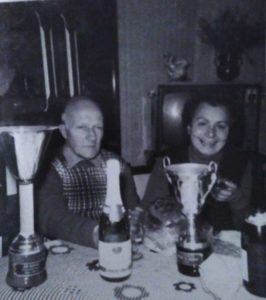
Mario-e-Olga-foto-di-famiglia
Mario died on the 6th June 2006 at 95 years old. A life devoted to cycling. Franca gave his Legnano racing bicycle, a homage of the Bozzi company to Rosi, to the Association “Amici del Museo Gino Bartali”. It’s still exposed at the Gino Bartali Cycling Museum in Ponte a Ema, where it’s right that it should be, not so distant from the Gino Bartali’s bicycle.
